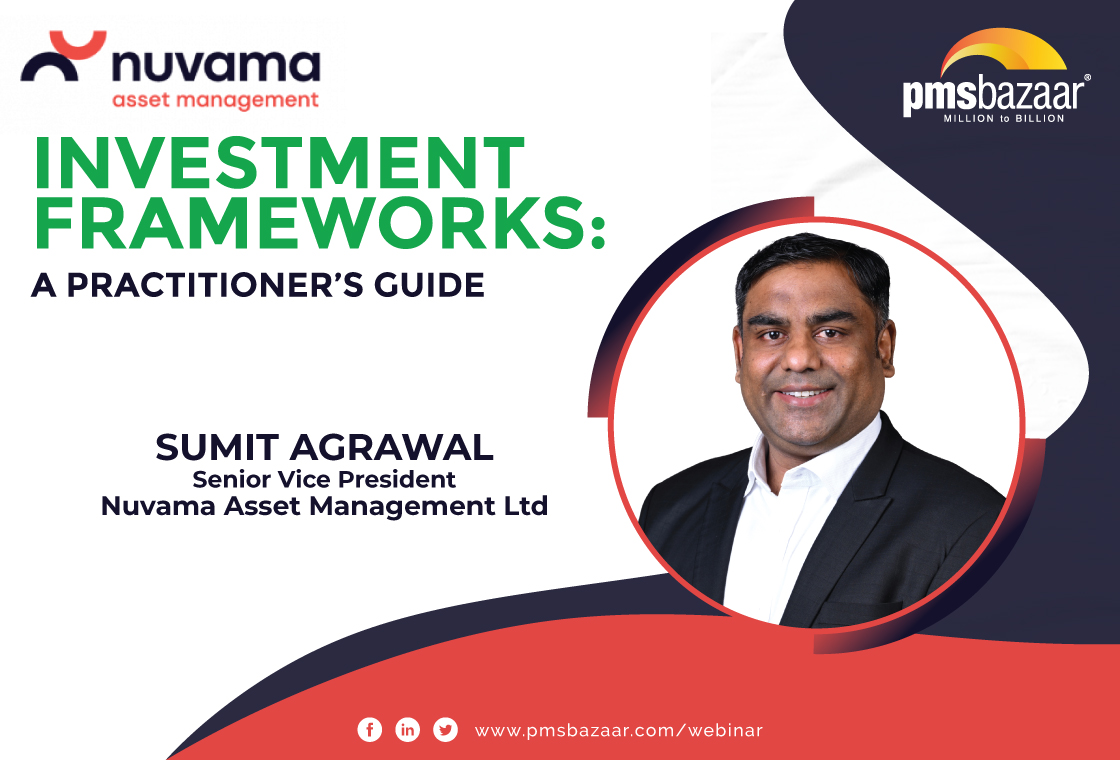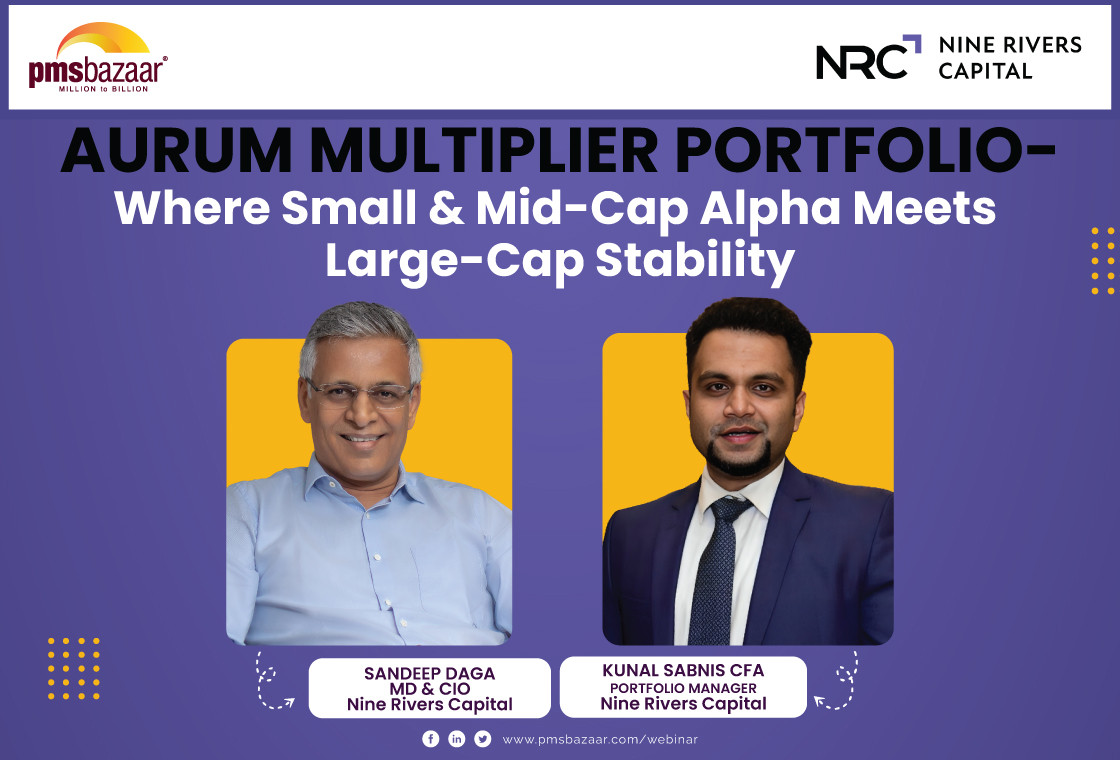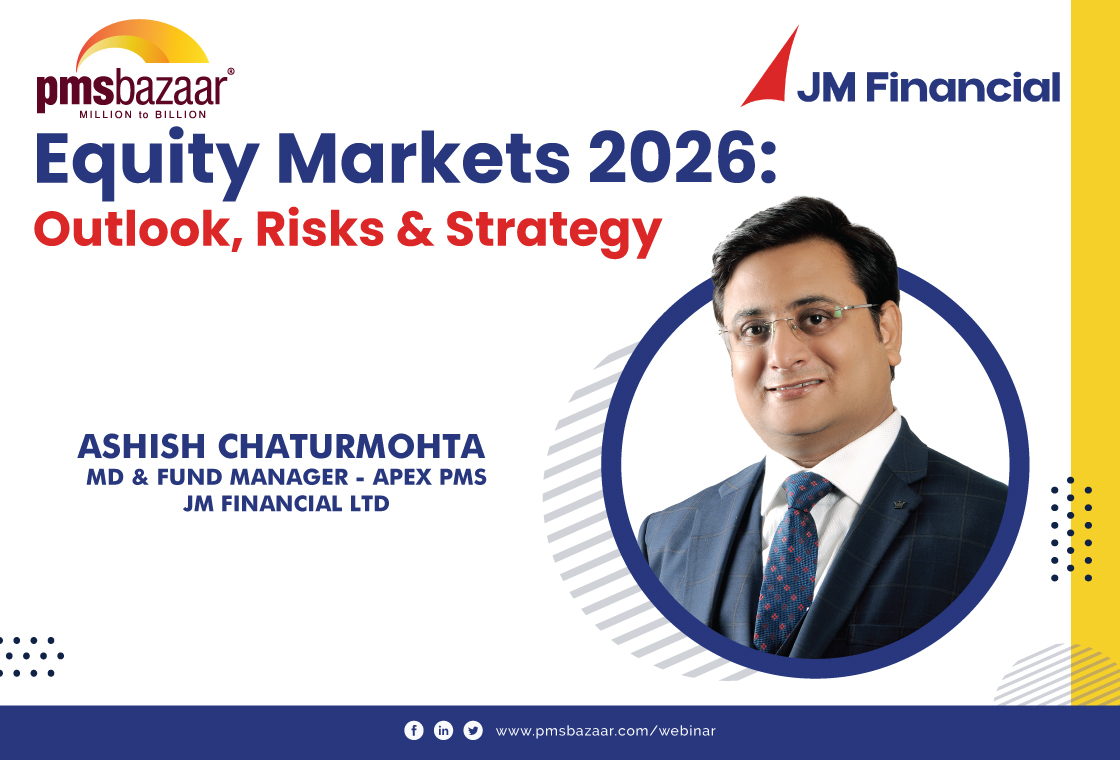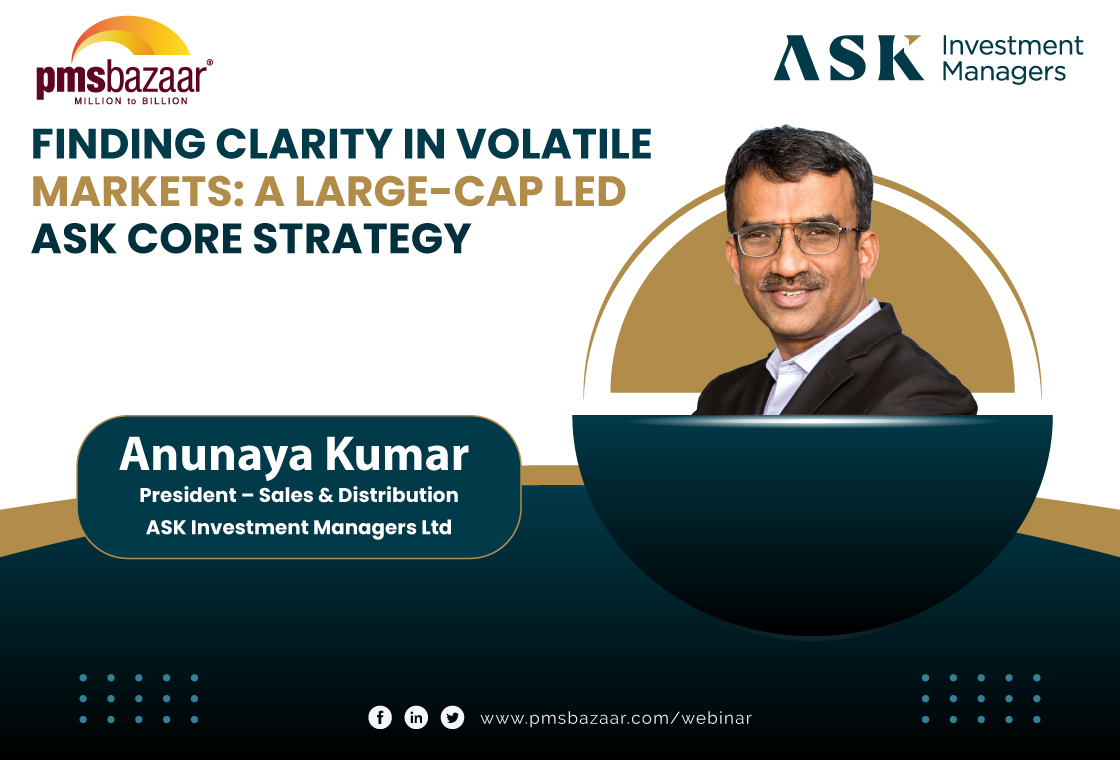For NRIs considering avenues to invest and participate in the India growth story, here is a lot of useful information and perspective. Mr. Krishnan Ramachandran-CEO Barjeel Geojit Financial Services answered questions from Mr. Vikas Sachdeva, MD, and Mr. Madanagopal Ramu, Head-Equities, both from Sundaram Alternates, on the evolving investment opportunities.

To deliver quality insights from an NRI Perspective, we recently conducted a webinar as a part of "The Alternates Universe" webinar series. This informative series, presented in collaboration with Sundaram Alternates, brings valuable insights from renowned industry experts. In this blog, we have covered the excerpt from the 2nd episode of The Alternates Universe with Mr. Krishnan Ramachandran, CEO - of Barjeel Geojit Financial Services LLC.
Mr. Ramachandran started off by saying that an NRI is now looking beyond just physical assets. Also, over the years, the profile of NRI preferences is changing. An NRI today starts off with investments in India but is also willing to look at any other global opportunity where returns can be made. So, the competition to draw investments from NRIs is global today, he said.
Talking about how till a couple of years ago even investing in debentures was tough, Mr. Ramachandran said things are changing now. He added that NRIs have no specific tax advantage over other categories of investors in terms of investing in India. In fact, in most investments, there are charged the highest slab. But the emergence of the GIFT city presents a good opportunity for NRIs to invest in India, as even a PAN card may not be required.
Mr. Ramu asked Mr. Ramachandran to highlight the factors that NRIs must keep in mind when they considered investments in India.
What NRI investors are concerned about
From an NRI perspective, the investment options are not limited just to India, said Mr. Ram. There is a soft corner for India in the case of NRIs. But NRIs are looking at the global alternatives market, for example, from the debt side where the returns are assured, which seems attractive.
There is also anxiety surrounding the rupee-dollar exchange movement. But over time, India has provided solid dollar returns to investors, Mr. Ramachandran added.
We are asking NRIs to consider at least a small portion of their portfolios for alternative investments in addition to PMS schemes, mutual funds, and direct equities, he said.
Earlier the focus was largely on real estate, and the return experience was mixed. But now, every segment in India is becoming well-regulated, and the whole property and alternatives segments are looking much better for NRIs, in his opinion.
Post-COVID and even during the lockdown, the market rally in India has seen a sea change in investor interest in the case of NRIs. There were record account openings during the period.
Cryptos were a big draw for NRIs. But now, in 2023, things are calmer, and there is awareness about reckless investing after the cryptos crashed and even regular asset classes declined sharply.
So, the NRI would now look at asset allocation more carefully and would look at a structured way of investing. They are looking at appropriate risk-adjusted returns.
Evolution of advisory space and regulatory environment
The financial advisor’s role is critical in the sense that every client is unique, and solutions should be specific, Mr. Ramachandran said. Today, the client is knowledgeable and comes with questions and expectations. So, a financial advisor has a very important part to play and has to be on top of the game.
In the evolving regulatory environment, governments across the world are becoming very focused on compliance, assessments, and risks so that investor interest is protected. They insist on a minimum large size for investments in avenues such as private funds.
Emerging opportunities and technology’s role
The discussion veered to investment opportunities for NRI investors, and Mr. Ramu wanted to understand the perception of private credit and equities in the alternative space.
Mr. Ramachandran said it was easier to judge the portfolio of asset managers in the equities space and judge the possible risk and returns over the long term. In the private credit space, the market has evolved strongly in recent years. You are talking about 12-16% kind of return in the private credit market, and even with currency depreciation, the dollar returns would look good with a bit more risk, he said.
The risks are also being managed very well with digital and fintech support. So, without leverage, there is a good opportunity to generate considerable alpha.
Mr. Ramu asked for more perspective on the digital and fintech role in the advisory space.
Mr. Ramachandran went on to say that what started as a means to compare products or portfolios has developed into rigorous analytics with the advent of technology and AI in the advisory space.
There is a backtesting of portfolios done to judge how they would play out. In the alternatives space, fintech may still be in the nascent stage. This industry would still require physical interaction.
Talking about asset allocation, Mr. Ramachandran said the traditional thumb rules may no longer apply. For example, allocating less to equities and less to debt after retirement may not be good enough as the retired life of a person can be longer than his working life.
Physical asset still remains a top priority for NRIs. There is an attachment to gold. It is only after that the real asset allocation starts. He emphasized the need for starting allocations early on in the career.
Answering a query on how to deal with factors such as taxation, cost, and currency movement, Mr. Ramachandran said NRIs can consider the DTA (double taxation avoidance) regime and move money smartly to optimize taxes. On costs, he said India is among the lowest cost regimes in terms of charges on financial products such as mutual funds. The value proposition is more important than cost, taxation, or currency movements. He said in 2022, it was more dollar appreciation than rupee depreciation due to global factors, geopolitical tensions, and so on. We may even see the rupee appreciating in the future as the dominance of the dollar is slowly reducing.
Mr. Krishnan Ramachandran answered many questions from Mr. Vikas Sachdeva and Mr. Madanagopal. Check the appended video link below to relive the entire session -
Get access to rich data and analytics of PMS & AIF by subscribing to us. Join the 48000+ investors & experts now: Subscribe NOW
Recent Blogs

January Rout, Extreme Dispersion: PMS Returns Swing From Losses to Gains
Benchmark falls deepened losses, but multi-asset and debt cushioned portfolios meaningfully

Investment Frameworks : A Practitioner’s Guide
PMS Bazaar recently organized a webinar titled “Investment Frameworks: A Practitioner’s Guide,” which featured Mr. Sumit Agrawal, Senior Vice President, Nuvama Asset Management Limited. This blog covers the important points shared in this insightful webinar.

Aurum Multiplier Portfolio - Where Small and Mid-Cap Alpha Meets Large-Cap Stability
PMS Bazaar recently organized a webinar titled “Aurum Multiplier Portfolio - Where Small and Mid-Cap Alpha Meets Large-Cap Stability,” which featured Mr. Sandeep Daga, MD& CIO, Nine Rivers Capital and Mr. Kunal Sabnis, Portfolio Manager, Nine Rivers Capital. This blog covers the important points shared in this insightful webinar.

Flat Markets, Wide Outcomes: How 484 PMS Strategies Performed in Dec 2025
December 2025 was a month where market returns stayed close to flat, with the Nifty 50 TRI at -0.28% and the BSE 500 TRI at -0.24%.

Equity Markets 2026: Outlook, Risks and Strategy
PMS Bazaar recently organized a webinar titled “Equity Markets 2026: Outlook, Risks and Strategy,” which featured Mr. Ashish Chaturmohta, MD & Fund Manager – APEX PMS, JM Financial Limited. This blog covers the important points shared in this insightful webinar.

MICRO CAPS: The Dark Horses of the Indian Equity Market
PMS Bazaar recently organized a webinar titled “MICRO CAPS: The Dark Horses of the Indian Equity Market,” which featured Mr. Rishi Agarwal and Mr. Adheesh Kabra, both Co-Founders and Fund Managers, Aarth AIF. This blog covers the important points shared in this insightful webinar.

Finding Clarity in Volatile Markets: A Large-Cap Led ASK CORE Strategy
PMS Bazaar recently organized a webinar titled “Finding Clarity in Volatile Markets: A Large-Cap Led ASK CORE Strategy,” which featured Mr.Anunaya Kumar, President – Sales and Distribution ASK Investment Managers Limited. This blog covers the important points shared in this insightful webinar.
.jpg)
Passively Active Investing — A Modern Investor’s Lens on ETF-Based PMS
PMS Bazaar recently organized a webinar titled “Passively Active Investing — A Modern Investor’s Lens on ETF-Based PMS,” which featured Mr. Karan Bhatia, Co-Founder and Co-Fund Manager , Pricebridge Honeycomb ETF PMs. This blog covers the important points shared in this insightful webinar.

